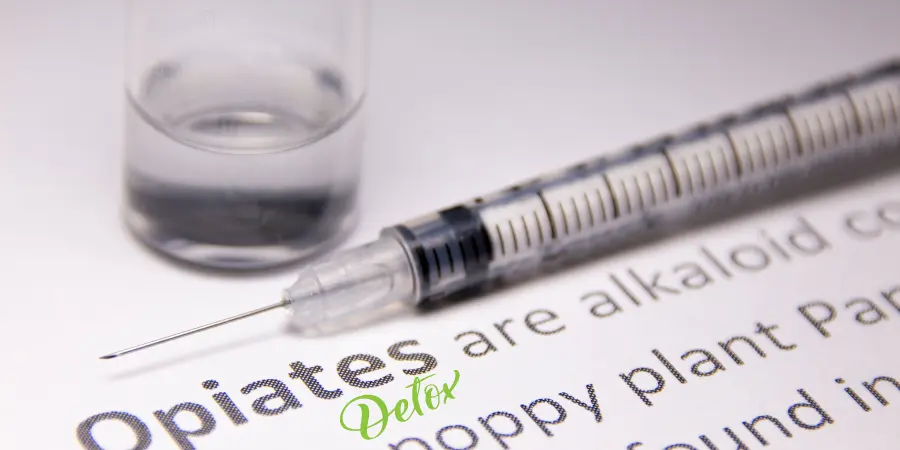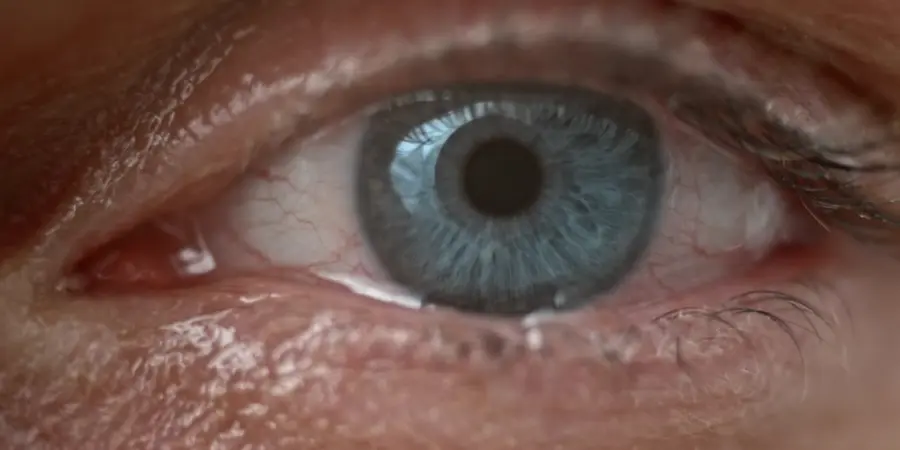
Written by:

Medically Reviewed by:
Last Updated:
March 5th, 2025
Opioid Detox and Withdrawal | Timeline and Treatment
Opiate detox represents the first stage in recovery from this class of drugs, which includes prescription painkillers like codeine, morphine, and oxycodone, as well as illegal drugs like heroin. Opiate detox refers to the process of cleansing your body from any harmful substances that have accumulated as a result of opiate addiction. Although this can be a scary prospect, it is a vital step and can be a rewarding process.
Abuse of opiates is a serious and growing problem in the UK with opiate poisoning representing nearly half of all drug-related deaths. If you are struggling to quit using opiates, it is vital that you seek professional help and start treatment with a medically supervised opiate detox.
What is opiate withdrawal?
During opiate detox, you may experience some unpleasant side effects known as ‘withdrawal symptoms’. Withdrawal from opiates can be both mentally and physically challenging, and the uncomfortable side effects experienced when you try to reduce or quit taking an opiate often make it very difficult to detox without professional intervention.
This is because opiates work by binding to receptors in the brain and spinal cord, which reduces pain signals and produces a sense of wellbeing and euphoria. However, when you suddenly stop taking them, your brain is no longer getting the same effect it has become used to, and this leads to opiate withdrawal symptoms during detox as the brain tries to readjust.
Opiate withdrawal symptoms
Opiate withdrawal symptoms can vary greatly during detox, depending on the length of your drug abuse, the frequency of consumption, and your overall health. Detox and withdrawal symptoms can range from mild to severe.
Common opiate detox and withdrawal symptoms include:
- Anxiety
- Agitation
- Muscle aches and pains
- Insomnia
- Restlessness
- Sweating
- Nausea and vomiting
- Diarrhoea
- Abdominal cramping
- Fever
- Runny nose
- Watery eyes
- Goosebumps
- Dilated pupils
- Yawning excessively
- Increased heart rate
- High blood pressure
Although these symptoms can be uncomfortable, ensuring you have a medical professional on hand throughout the process will also help you to feel at ease during this time. It is important to take each day step by step throughout detox, keeping in mind that you will soon be feeling a multitude of benefits as your body heals.
What can I expect from opiate detox?
If you’re feeling anxious about undergoing an opiate detox, please don’t worry. Our team at Primrose Lodge has a wealth of experience when it comes to the detox process, and can help you to manage this stage of your recovery effectively.
When you arrive at Primrose Lodge for opiate detox, you will take part in an initial assessment whereby our medical staff will evaluate your potential needs. Your body will naturally begin expelling toxins when you stop taking an opiate, and this is when opiate detox begins.
Your safety and comfort come at the top of our list during your opiate detox, and so we will be there 24 hours a day to monitor your condition and offer you care and assistance. Our knowledgeable team will extend their guidance and provide you with everything you need to battle through this important stage of your recovery.
Opiate detox timeline
Depending on the type of opiate in question and the length of abuse, the onset and duration of withdrawal may vary. For example, short-acting opioids like codeine will cause a more rapid onset of symptoms with a shorter duration, whereas long-acting opioids like fentanyl will have a slower onset but detox and withdrawal will last longer.
The opiate detox timeline will therefore depend on:
- The type of substance
- The individual’s overall health
- The length of drug abuse
- The frequency in which the substance is taken
Those who have been abusing opiates for a long period of time are likely to suffer from more severe detox and withdrawal symptoms, and for a longer duration.
In general, the first week of opiate detox is when most people will experience the majority of withdrawal symptoms, with these gradually subsiding over a number of days.
It is important to note that some people may experience post-acute withdrawal syndrome (PAWS), which is when symptoms persist for months or even more than a year after opiate detox. If you are worried about PAWS, or any other aspect of your opiate detox, our team at Primrose Lodge is only a phone call away.
Can I detox from opiates at home?
Although it is possible to detox from opiates at home, it is not advisable. This is because withdrawal symptoms can be both uncomfortable and potentially dangerous, so it is always best to detox under medical supervision.
You may be wondering what kinds of risks are involved, as opiate detox is not usually considered life-threatening. However, there are many unpredictable and potentially dangerous side effects that can occur during detox, including:
- Dehydration due to excessive sweating, vomiting, and diarrhoea
- Cardiovascular problems resulting from high blood pressure and raised heart rate
- Severe anxiety and panic attacks
- Intense depression which can lead to suicidal ideation
Detoxing from opiates at home also means you are more likely to relapse, as there will be no professional support on hand to help you through the difficult moments. If you are considering detoxing at home, we would urge you to reconsider and take part in an assisted detox at a reputable treatment facility.
What are the benefits of opiate detox?
There are a number of benefits that come hand-in-hand with opiate detox. In the short term, you will be able to complete the first stage of recovery and lay the groundwork for successful ongoing sobriety.
Other long-term benefits include:
- Liberation from a damaging cycle of drug abuse
- A renewed sense of well-being
- Improved overall health
- Improved confidence and self-esteem
Detoxing from opiates under medical supervision also means you are less likely to experience complications or relapses, both of which can be dangerous. Once you have completed opiate detox, you will be able to feel proud of this accomplishment and begin to enjoy a life without the restrictions of drug abuse holding you back.
Which opiates require detox?
Unfortunately, due to the many potent and addictive qualities associated with opiates, all require some form of detox. While this may seem incredibly daunting, opiate detox is certainly manageable if you receive the proper care and support. Primrose Lodge has expertise in dealing with all kinds of opiate detoxes, including:
If you have found yourself taking any of these opiates outside of their prescribed use, detox could be the crucial first step you need to regain control and avoid the dangers associated with the misuse of these substances.
Is opiate detox enough for recovery?
Unfortunately, opiate detox alone is not enough to cure opiate addiction – this is a chronic condition that requires ongoing treatment at opiate rehab and dedication from the recovering user, often throughout their entire life.
Opiate detox is, however, an important first step in your recovery journey. It gives you the opportunity to start making positive changes in your life, including the ability to rejuvenate your health, rebuild relationships, and take back everything that drug abuse once stole from you.
After you have completed your detox, the next phase of treatment will work on the psychological aspects of your recovery, including identifying underlying issues or co-occurring mental health disorders that may have led to your opiate abuse. In order to gain long-term sobriety, it is vital that you receive a well-rounded treatment plan that aims to tackle the root causes of your cravings.
If you would like more information about opiate detox treatment, or if you have any other questions about opiate abuse, we are always happy to chat.
Next steps
At Primrose Lodge, we understand that taking the first step can be a little overwhelming, but we assure you that you will be in safe hands every step of the way. Don’t let your fears of opiate withdrawal prevent you from living your life to the fullest – we can help you take back control and give you the tools you need to maintain sobriety.





